Reduce Turnover Rate by Retaining Millennials in the Workplace
More and more millennials are becoming part of the workforce and a growing number now occupy senior positions.They are leaders of today, not tomorrow as they used to be and they want to see how business does and should conduct itself. Thus, reducing turnover rates and retaining Millennials in the workplace is crucial for every company's success.
Also,it is normal for them to show very little little loyalty to their current employers and many are planning near-term exits. Often their personal values are ahead of organizational goals, and they are often looking to improve their leadership skills. Their opinions start to shift because whole Millennial generations is getting older and most of them are also becoming parents.
![https://adoptoprod.blob.core.windows.net/article/xndQETdUVUqBQBn_x233Kg.png?3691]()
We found an interesting study from Deloitte which can be found at the following here. Below is a summary of the most important parts.
Reduce your turnover rate by stopping Millennials from leaving
Percentage who expect to leave in the next…
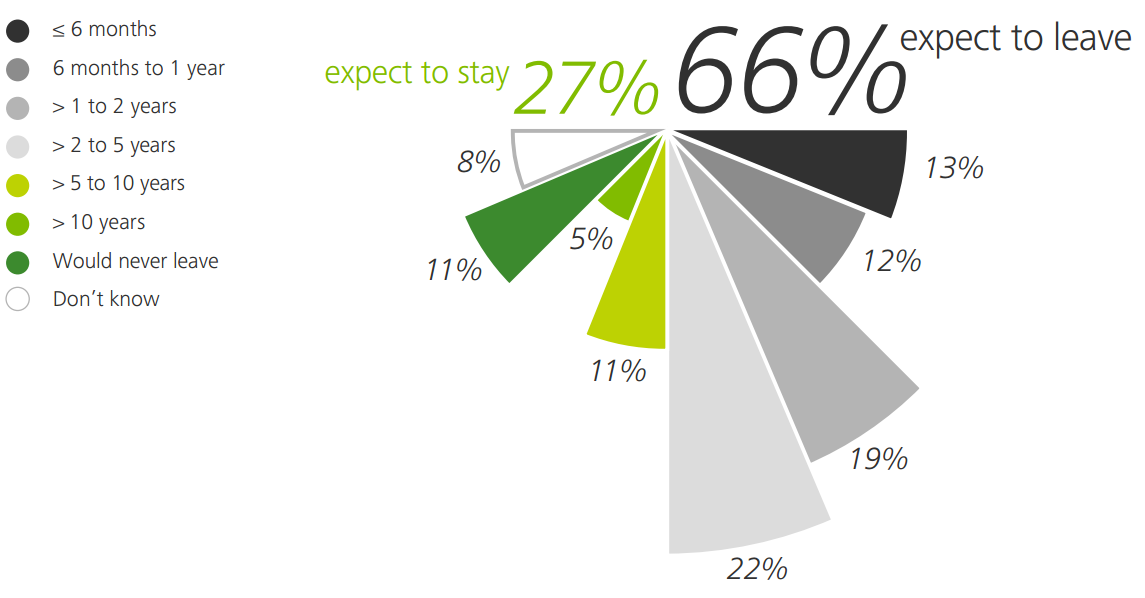
Figure 1: Two in three Millennials expect to leave by 2020
Even those Millennials in senior positions express the intention to leave their organizations relatively soon, approximately one in five respondents are either the head of a department or division or part of senior management. Clearly, Millennials no longer have the potential to shape the fortunes of their organizations; many are already in positions to do so. While this naturally represents gains for new employers, this is a significant amount of senior talent (and investment) to be walking out the door.
It is obvious that Millennials, especially talented ones, have options to choose from. For these reasons, many employers are facing high turnover rates, and their main goals are to reduce turnover rates by retaining Millennials in the workplace.
More than six in ten Millennials say their “leadership skills are not being fully developed.” Regardless of gender or geography, only 28 percent of Millennials feel that their current organizations are making ‘full use’ of the skills they currently have to offer. Millennials fully appreciate that leadership skills are important to business and recognize that, in this respect, their development may be far from complete.
Sign up for our Free Leadership Email Course for Managers!
Of great significance in the current survey results is the finding that 71 percent of those likely to leave in the next two years are unhappy with how their leadership skills are being developed—fully 17 points higher than among those intending to stay beyond 2020. The most loyal employees are more likely to agree that:
- There is a lot of support/training available to those wishing to take on leadership roles; and
- Younger employees are actively encouraged to aim for leadership roles.
Meanwhile, the least loyal employees are significantly more likely to say that:
- I’m being overlooked for potential leadership positions; and
- My leadership skills are not being fully developed.
Shared goals, different focus—the "sustainability gap"
For example, in 2015 it was reported a significant gender gap of six points between the proportion of men (27 percent) and women (21 percent) who rated their leadership skills as strong.
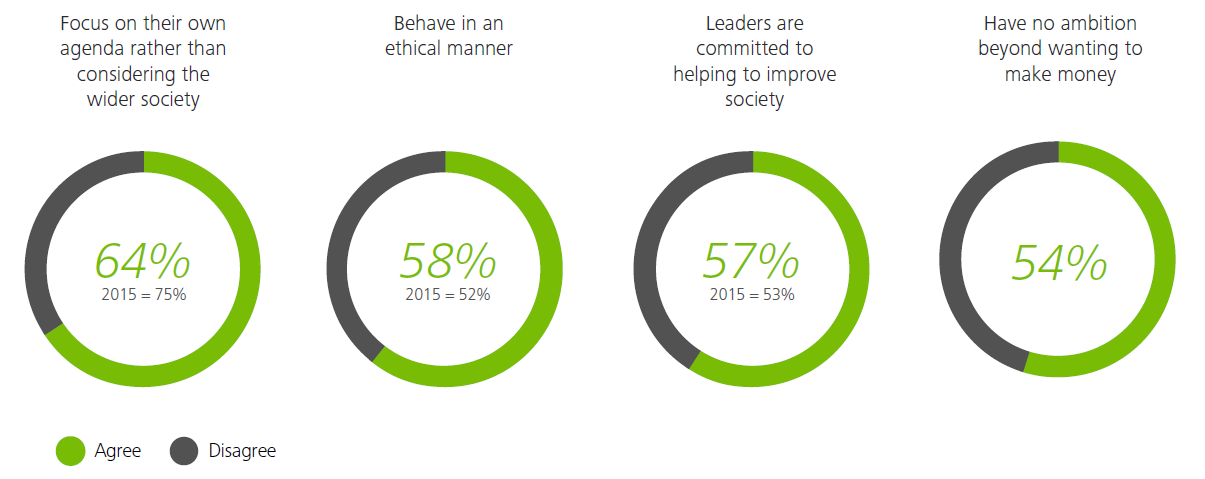
Figure 2: Millennials believe businesses to be more ethical and society-focused than a year ago, but remain wary of motivations.
Much skepticism remains, driven by the majority held belief that businesses have no ambition beyond profit. Almost nine in ten (87 percent) believe that “the success of a business should be measured in terms of more than just its financial performance.” This is a widely held belief.
Millennials continue to hold business in high regard: threequarters (73 percent) maintain that it has a positive impact upon wider society. As such, it is encouraging that such Millennials are pro-business rather than anti-business. On balance, Millennials still believe that businesses focus on their own agendas—but compared to 2015, they are significantly less likely to say this.
Business has a positive impact on society
Millennials judge the performance of a business on what it does and how it treats people. For example, among those saying business “means more than a healthy balance sheet,” more than six in ten would reference the quality of its products and services (63 percent) or levels of
employee satisfaction (62 percent). A majority (55 percent) focus on
customer loyalty and satisfaction. Innovation and efficiency also rank highly.
Some of the most noteworthy comments were:
- “Ensuring employees feel comfortable—that is a successful company; where people are free to perform their tasks and duties regardless of time and space” - Female, Mexico
- “Setting long-term goals that both improve the business and treat employees with respect and integrity” - Male, Canada
- “The most important values are integrity, a customer-first strategy, and long-term goals” - Male, Singapore
- “To be fully transparent and strive for fairness and equality in all aspects of their workings” - Male, UK
- “Following environmentally sustainable practices and offering employees a good work/life balance” - Female, Australia
- “The most important values are honesty, reliability, and respect.” - Female, Spain
- “The key values for long-term success are social responsibility, employee satisfaction, and a good working environment” - Male, Peru
- “Respect for people and the environment” - Female, Brazil
- “Fair competition and a harmonious social environment. A sense of innovation is also particularly important” - Male, China
- “Important values include low staff turnover, quality of service or products, environmental protection, and employee satisfaction” - Female, Chile
Aligned values, but mismatched purposes
Strong degree of alignment with their employers does not mean Millennials are a benign workforce. Almost half (49 percent) have “chosen not to undertake a task at work because it went against their personal values or ethics.”
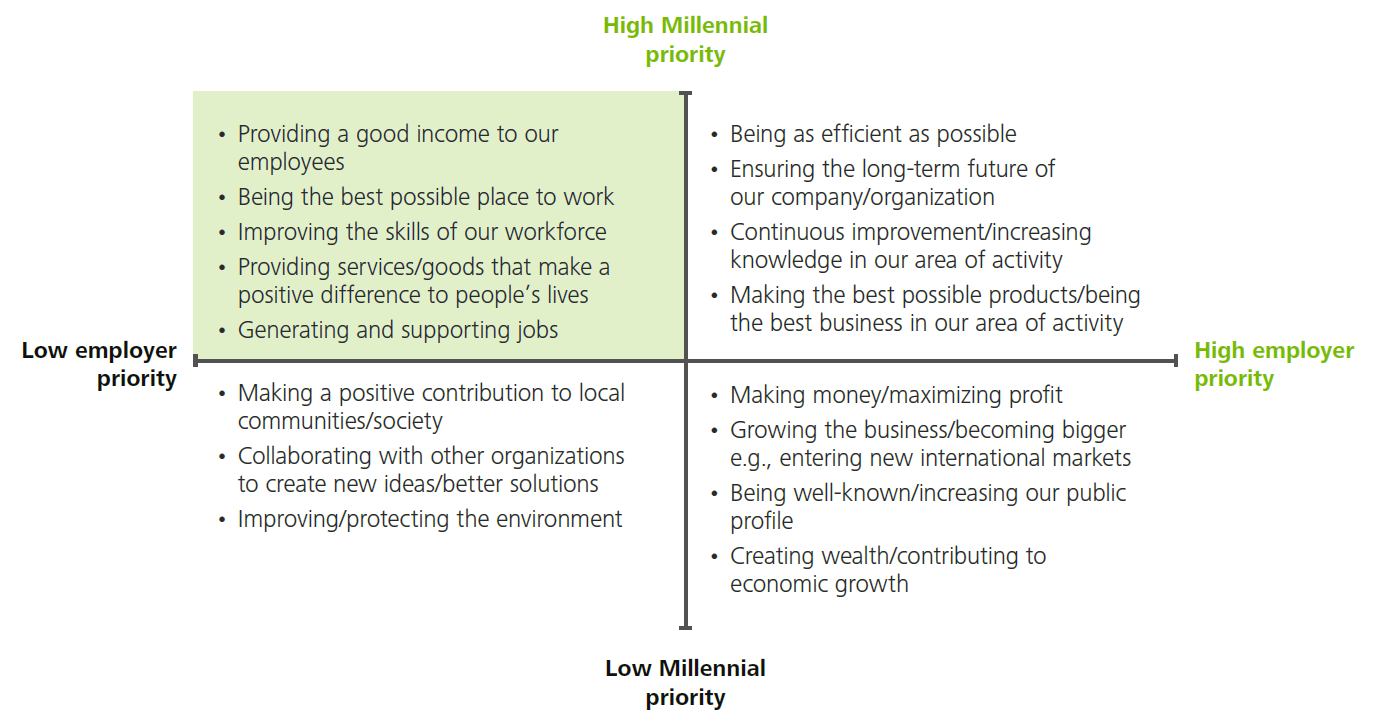
Figure 3: Millennials would prioritize the sense of purpose around people rather than growth or profit maximization
There are five key areas where Millennials believe businesses’ sense of purpose should be far greater than is currently the case. Shown in the top-left quadrant of Figure 3, these areas include: improving the skills, income, and “satisfaction levels” of employees; creating jobs; and impacting positively on users of their goods and services. Diametrically opposed is the emphasis on profit and business expansion.
Similar to those in more junior roles, members of senior management teams would personally like to see a greater sense of purpose around “being the best possible place to work” and “providing a good income to employees.” This generation evaluates such success in ways that go beyond a focus on financial performance, increasing the focus on activities and behaviors that support long-term sustainability. The potential for a “profits-first” approach to alienate Millennials is highlighted by its relationship to a range of variables in our dataset.
Millennials are not naive, though, they recognize the importance of ensuring the long-term success of a business and its ability to support and create jobs.
Where holding people to account is a characteristic of an organization, respondents are just as likely (54 percent) as the survey average (53 percent) to say there are high levels of
job satisfaction. It is also the case that holding people to account for their actions does not appear to diminish loyalty. Where such accountability is evident (28 percent), Millennials are just as likely as average (27 percent) to stay with an organization for five years or more.
Bridge the gaps, retain Millennials
Authors of survey observed that loyalty to an employer is driven by understanding and support of Millennials’ career and life ambitions, as well as providing opportunities
leadership development and progress. Having a mentor is incredibly powerful in this regard.
Mentoring is having a positive impact and six in ten (61 percent) Millennials are currently benefiting from having somebody to turn to for advice, or who helps develop their leadership skills.
Figure 4: Millennials with a mentor are receiving good advice and feel somebody is interested in their professional development
Using a trade-off technique, authors presented respondents with 14 factors they might consider when choosing whether to work for an organization This single factor accounts for more than a fifth (22 percent) of the combined level of influence of the 14 factors measured. This was found to be true in each of the 29 markets covered, so it would appear to be a universal truth of Millennial recruitment. However, organizations cannot afford (in all senses) to engage in a bidding war for Millennial talent. There is a limit to what an organization can pay and, while compensation may be the strongest single driver of employer choice, it does not work in isolation. If a candidate is choosing between organizations offering similar financial incentives, other factors come into play. Understanding these factors as a package will help employers attract and retain Millennial talent.
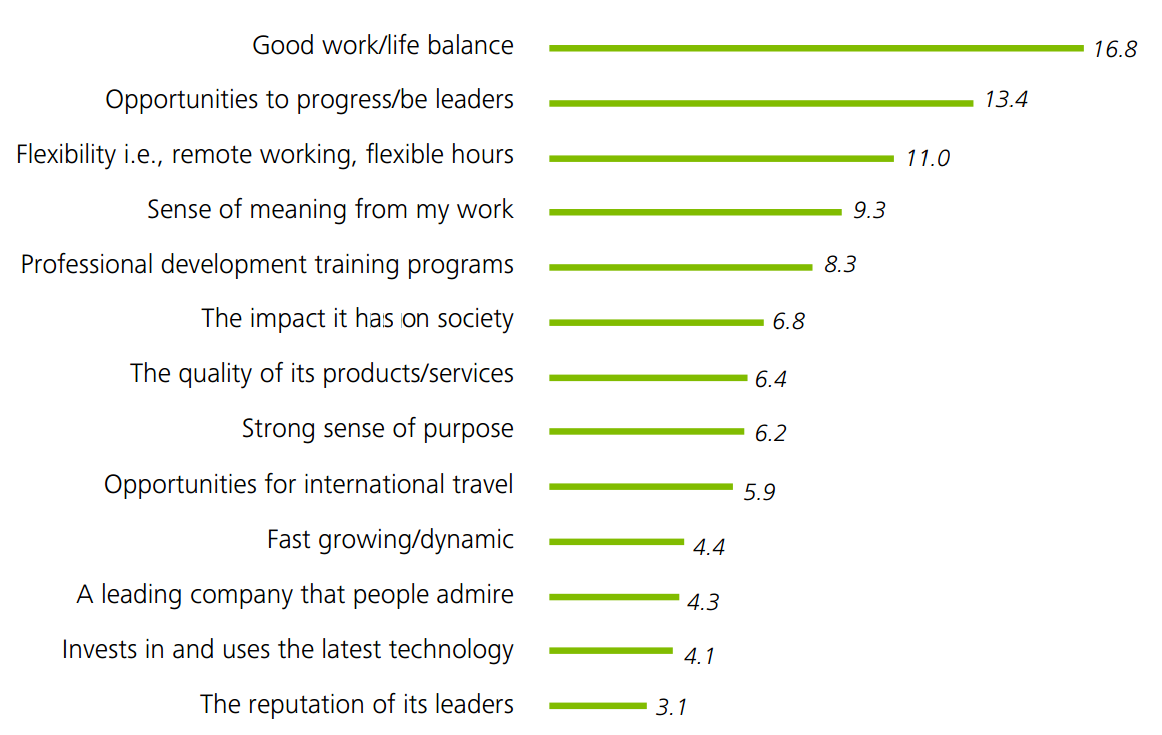
Figure 5: In most markets, work/life balance comes before career progression when evaluating job opportunities
As Figure 5 illustrates, when salary or other financial benefits are removed from the equation,
work/life balance and opportunities to progress or take on leadership roles stand out. Those factors are followed by flexible working arrangements, deriving a sense of meaning, and training programs that support professional development. An employer that can offer these is likely to be more successful than its rivals in securing the talents of the Millennial generation. On the other hand, they will find it hard to become an employer of choice if they attempt to differentiate primarily by means of their growth records, market leadership, use of technology or, least influential of all, the reputation of their senior executives.
Women are as equally likely as men to rate opportunities for career progression and leadership roles as a major factor; the genders are also aligned on the value of professional development support, impact on wider society, and opportunities to travel. Where differences do appear, and this is in degree of influence rather than rank order, women place greater emphasis on flexible working opportunities and the ability to derive a sense of meaning from their work. Men, meanwhile, prioritize a number of external factors linked to an organization’s reputation. These are not top-ranked factors but, perhaps mindful of what others would think if they worked for a particular organization, men would be more likely to consider the following when deciding who to work for:
- Investment/use of technology;
- Being fast-growing/dynamic;
- Quality of products/services;
- Being a leading company that people admire; and
- The reputation of its leaders.
Hire the right talent for your company, with the help of TalentLyft
Talentlyft helps you optimize your recruitment process from start to finish! Find and attract more qualified candidates and improve candidate experience for in every stage of the recruitment process. Book a call with one of our product specialists to learn more.
Book a quick call 






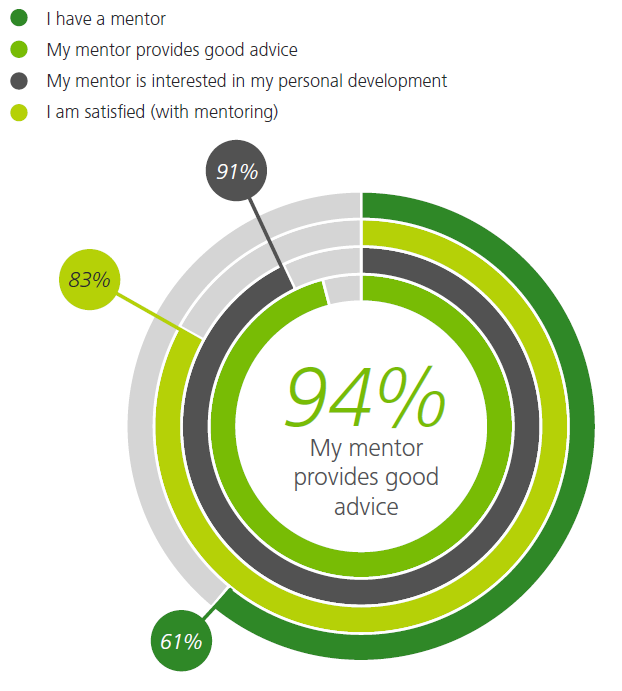



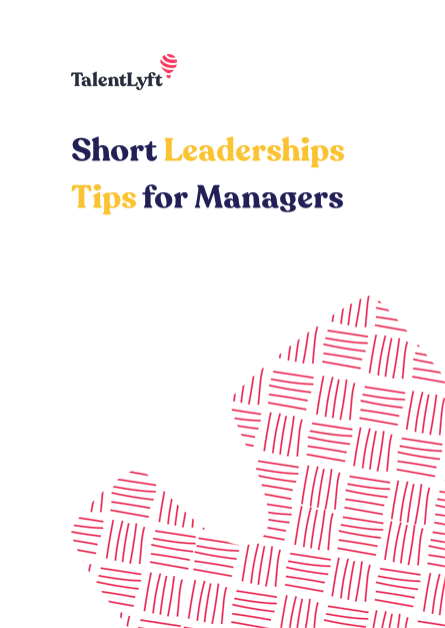






![[GUIDE] How to Segment Your Talent Pool](https://adoptostaging.blob.core.windows.net/article/0pOm3nwXhEm6SEPThfIO2Q.png?8619)


